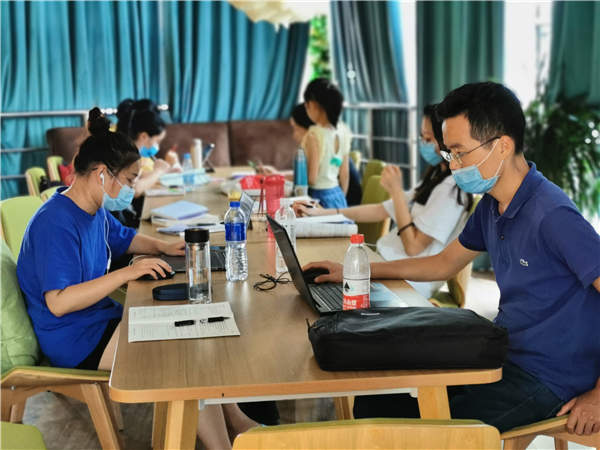Community knowledge bases blossom
By Wang Kaihao | China Daily | Updated: 2020-09-21 08:00

"It's better to create an environment for people to share their knowledge and re-establish face-to-face interaction with real people," she adds.
As COVID-19 wanes in China, such events have gradually resumed. Zheng is now drafting a list of planned, long-awaited lectures to cater to eager local readers.
Zheng estimates that about 40 percent of readers at the Apricot Flowers Academy are elementary and high school students. The urban reading spaces seem to have become asylums for these regular denizens of cyberspaces to escape from their digital lives.
It takes 14-year-old junior high school student Sun Tengfei 20 minutes to travel to Xinghua Park via the subway, including the walk from the station. However, compared with home, this place offers a more immersive atmosphere for absorbing knowledge.
"My parents don't want me to spend too much time playing with my smartphone," he says. "But there are too many digital distractions at home, so I often come here during summer break to spend an afternoon reading several novels I like. It feels cozy."
And many more students treat the reading spaces as their study rooms. Sometimes, a spot will be reserved so they can have a quiet area in which to work.
However, it is difficult to cut ties with the digital world. After the outbreak of COVID-19, the reading space was temporarily closed, so an online bookstore was launched by Zheng's team to better serve the readers. It is now maintained to provide its patrons an extra option.
























